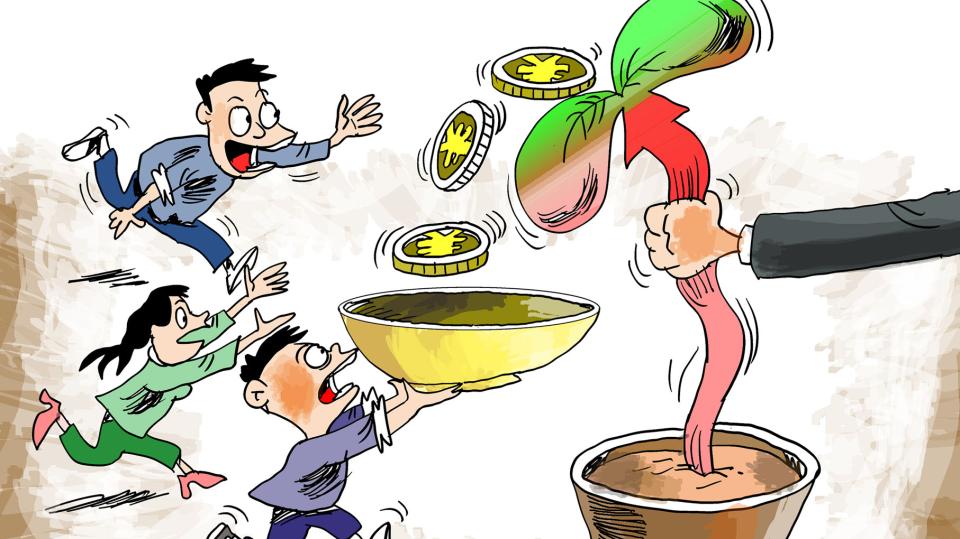While the US has experienced the longest bull stock market in history over the last decade, China’s stock market has consistently performed poorly. Writing for Hong Kong-based newspaper
Ta Kung Pao, columnist Shen Ling argues a major reason is that listed companies fail to pay out enough dividends and an investment philosophy has not taken root.
Chinese public companies choose not to pass on dividends either because in a period of rapid growth, a public company needs huge capital to expand production, or companies who anticipate future losses are likely to use profits as a safeguard. Some ill-minded companies simply want to move the profits overseas, for example, Changhong, a Chinese white goods maker, raked in huge profits in China but later transferred them entirely to the US, according to Shen.
In this situation, Chinese investors are unable to have their share of businesses’ profits and thus cannot foster a rational investment philosophy. Arguing that public companies who rarely pay out dividends are depriving investors of their interests, Shen proposed that Chinese public companies should be forced to pass on dividends on shares, but the criteria need to vary among different companies.
For example, he said, companies averaging less than 20 percent annual growth over the last three to five years should pay out no less than 50 percent of the dividends; for companies growing at 20 to 50 percent, the ratio should be no less than 30 percent; and for companies growing at 50 to 100 percent, the ratio no less than 15 percent. Aside from enabling a proper philosophy of investment to take root, it enables relatively small businesses to keep more of their profits to promote growth.

 Old Version
Old Version